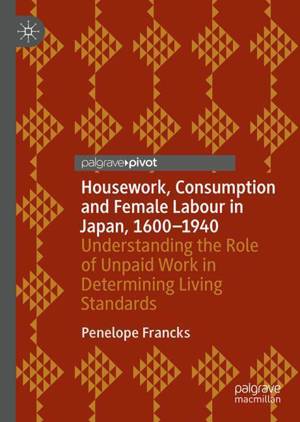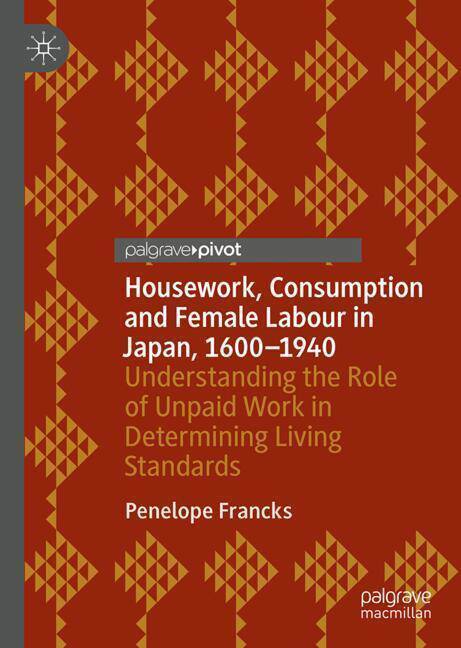
- Retrait gratuit dans votre magasin Club
- 7.000.000 titres dans notre catalogue
- Payer en toute sécurité
- Toujours un magasin près de chez vous
- Retrait gratuit dans votre magasin Club
- 7.000.0000 titres dans notre catalogue
- Payer en toute sécurité
- Toujours un magasin près de chez vous
Housework, Consumption and Female Labour in Japan, 1600--1940
Understanding the Role of Unpaid Work in Determining Living Standards
Penelope FrancksDescription
This book illuminates the largely neglected contribution of unpaid, primarily female household labour to economic production and living standards in Japan from the early modern period to the eve of World War Two.
The difficulties involved in measuring time devoted to housework and other forms of household labour in the past have meant that most attempts to assess the process of industrialisation have failed to recognise the ways in which such labour is essential to the sustainability and welfare of the population. In this context, Japan presents a significant example of a historical case of industrialisation occurring within an economy that continued to be dominated by the institution of the household. This short study argues that this must have led to a particularly significant underestimation of Japanese living standards in the past, with implications for comparative and global analysis, and to neglect of the key role of women in the historical economy. Providing a nuanced yet concise analysis, this book will be valuable reading for scholars of economic history and feminist economics, as well as introducing important comparative angles for researchers in Japanese studies and gender studies more widely.
Spécifications
Parties prenantes
- Auteur(s) :
- Editeur:
Contenu
- Nombre de pages :
- 77
- Langue:
- Anglais
- Collection :
Caractéristiques
- EAN:
- 9783031836923
- Date de parution :
- 28-02-25
- Format:
- Livre relié
- Format numérique:
- Genaaid
- Dimensions :
- 148 mm x 210 mm

Les avis
Nous publions uniquement les avis qui respectent les conditions requises. Consultez nos conditions pour les avis.






